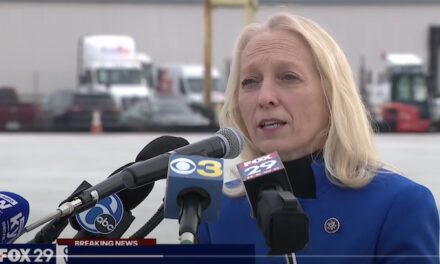NEW YORK (AP) — Stocks are swinging lower through a roller-coaster Friday following a blockbuster report on the U.S. jobs market that offered both good and bad news for Wall Street.
The S&P 500 was back down 0.9% in midday trading after recovering from an early loss of 1.1% to nearly breakeven. Other stock indexes were similarly shaky as U.S. employers unexpectedly accelerated their hiring last month and added hundreds of thousands more jobs than forecast.
The blistering data suggests the economy may not be in a recession, as feared. But it also undercuts investors’ speculation that a slowing economy may mean a peak for inflation soon. That means the Federal Reserve may not let up on its aggressive rate hikes to combat inflation as early as hoped. And much of Wall Street still revolves around expectations for rates.
Stocks of technology and other high-growth companies once again took the brunt of the losses amid the rising-rate worries, and the Nasdaq composite fell 1.5%, as of 11:30 a.m. Eastern time.
The good news on the jobs market helped to limit losses for the Dow Jones Industrial Average, whose stocks tend to move more with expectations for the overall economy. It was down 0.6%, or 180 points, at 32,545.
Beyond the nation’s strong hiring, wage growth for workers also unexpectedly accelerated last month. That’s helpful for households trying to keep up with the fastest price gains in 40 years. But it also raises worries on Wall Street that inflation will become more embedded in the economy.
Higher wages can cause companies to raise prices for their own products to sustain profits, which can lead to something economists call a “wage-price spiral.”
To be sure, some market watchers also pointed to numbers within Friday’s employment report suggesting the jobs market may not be as strong as the overall numbers imply. The number of people with multiple jobs rose by more than half a million, for example, said Brian Jacobsen, senior investment strategist at Allspring Global Investments.
“That was mostly from people who already have a full time job and then the second job is part time,” he said. “Maybe this is more superficially impressive than substantively impressive.”
Wall Street’s clearest moves were coming from the bond market, where Treasury yields shot higher immediately after the release of the jobs data. The two-year Treasury yield, which tends to track expectations for Fed action, jumped to 3.20% from 3.05% late Thursday. The 10-year yield rose to 2.84% from 2.69%.
Wall Street is coming off the best month for stocks since late 2020, a rally driven mostly by what had been falling yields across the bond market. The hope on Wall Street had been that the economy was slowing enough to get the Fed to ease up on its rate hikes.
Higher mortgage rates had cut into the housing industry, in particular, after the Fed raised its short-term rates four times this year. The last two increases were triple the usual size, and the Fed has raised its benchmark overnight rate from nearly zero by 2.25 percentage points.
“Today’s print, coming in much stronger than anticipated, complicates the job” of the Federal Reserve, Rick Rieder, BlackRock’s chief investment officer of global fixed income, said in a statement. He said the assumption now becomes the Fed raising short-term rates by another 0.75 percentage points next month, unless next week’s highly anticipated report on inflation “shows some dramatic weakness, which seems highly unlikely at this point.”
Traders scrambled to place bets for bigger hikes coming out of the Fed’s next meeting. They have flipped their expectations from a day earlier and now largely expect the Fed to hike by 0.75 percentage points, instead of by half a point.
Such increases hurt investment prices in the near term, and they raise the risk of recession further down the line because they slow the economy by design.
Such expectations also mean the two-year Treasury yield remains above the 10-year yield. That’s unusual, and some investors see it as a sign of a recession hitting the economy within the next year or two.
Stronger-than-expected profit reports from companies have helped bolster stocks in recent weeks. On Friday, Warner Bros. Discovery fell 16.4% for the biggest loss in the S&P 500 after reporting weaker results for the latest quarter than analysts expected. Monster Beverage lost 7% after it reported weaker profit than expected, though its revenue was stronger than forecast.
In overseas stock markets, India’s Sensex rose 0.2% after the Reserve Bank of India raised its benchmark interest rate by a half percentage point to 5.4%.
Japan’s Nikkei 225 rose 0.9%, while Germany’s DAX fell 0.5%.
© 2022 The Canadian Press. All rights reserved.
—-
This content is published through a licensing agreement with Acquire Media using its NewsEdge technology.



















Most American inflation today is due to the higher price of scarce fuel. Biden is releasing a million barrels a day of oil from the strategic oil reserve and plans to do so for the next 6 months to ease the price of gas until the election is over. He also proposed to lowered federal gas taxes by $.18 cents per gallon,,,neither of which adds to the American oil supply, which is falling because of his killing the Keystone pipe line that robbed us of 860 million barrels we would have today, piped in from Canada which the Chinese want piped to the west coast for them. When the reserve runs out the price of scarce fuel will rise and inflation will be worse than when Joe started screwing up the normal economy of basic supply and demand.